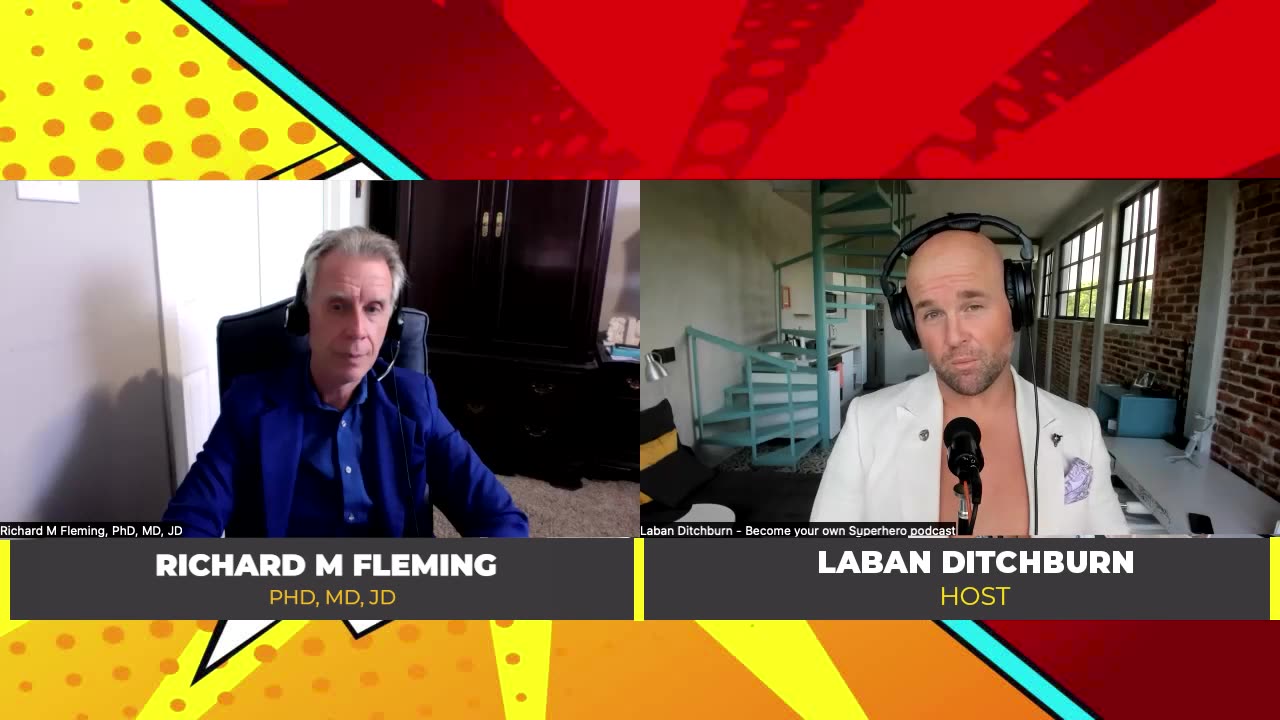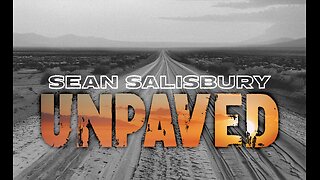Premium Only Content

The Case for Richard M Fleming (PhD, MD, JD)
Guilty As Charged?
A recent Pew study (2018), reviewed approximately 80,000 federal prosecutions and found just two percent went to trial. Up to 97% of federal criminal convictions are obtained through plea bargains - defendants pleading guilty - revoking their constitutional right to a trial - for assurance of a lesser penalty. There is a growing list, the National Registry of Exonerations, however, that exhibits conviction after conviction based on fabricated evidence, false testimony and outright refusal to consider proof of innocence. Each miscarriage of justice cited in this Registry was an element present in the 2009 case of The United States v. Richard M. Fleming.
If the felony indictments against Dr. Richard Fleming caused you to discount his contributions to medical research, this podcast will challenge your understanding of judicial gymnastics and institutional justice. Indeed, the Doctor pled guilty to charges, but without deeper investigation, you’d never know they were not the criminal charges of Medicare and mail fraud. No one can fault you for your wariness, and you wouldn’t be alone. Until recently - in this age of Michael Flynn, Russia Gate, and Manafort, plea deals have been the "gold standard" indicator of guilt.
But would your thinking change, if it were proven that thousands of individuals are wrongly convicted by a system often indifferent to innocence and judicial error? Devoid of accountability? That DC’s profit-laden “opportunities,” fronted by the yeast-like politically ambitious, often lead to the indictment of those who dare challenge the narrative? What if it could be proven that Dr. Richard Fleming was indicted not for criminal activity, but for trumped-up charges related to his disruptive discovery that benefited the patients and their medical team over industry profit? If our ultimate goal as a society is to advance the human condition equitably for all, then it is essential that we separate the science from the Big Pharma narrative and other institutional strongholds.
You now hold the gavel and are encouraged to investigate the following legal documents and details found largely outside the public purview. The picture presented here is not pleasant. Our government systems, once thought to protect us and seldom questioned, may in fact, be advocating surreptitiously for an other class, of which we, the general public, are not a part. How do we challenge this ruling elite to right the injustice? Certainly, pursuing the greater good requires that we not only ask the questions or support those who do, but demands that we admit that even a skeptic looks both ways before crossing the street.
-
 LIVE
LIVE
LFA TV
20 hours agoALL DAY LIVE STREAM - 4/22/25
1,021 watching -
 1:39:24
1:39:24
The HotSeat
2 hours agoNo Consequences for Chaos: Tesla Gets Torched While Trump Makes Freeloaders Pay Up
20.7K4 -
 LIVE
LIVE
RalliedLIVE
2 hours ago $0.40 earnedWarzone Wins All Night w/ Ral
174 watching -
 45:55
45:55
Coin Stories with Natalie Brunell
6 hours agoT.J. Miller on Hollywood's Bitcoin Blind Spot, Celebrity vs Wealth and Why There's No Second Best
15.9K1 -
 1:09:27
1:09:27
Russell Brand
6 hours agoGlobalism Is DEAD! WEF Leader Klaus Schwab RESIGNS “A Movement Is Bringing Down The System!” – SF570
152K149 -
![[Ep 655] Due Process for Who? | US Oil Dividend: Howe if Could Happen](https://1a-1791.com/video/fww1/ce/s8/1/L/Z/j/E/LZjEy.0kob-small-Ep-655-Due-Process-for-Who-.jpg) LIVE
LIVE
The Nunn Report - w/ Dan Nunn
2 hours ago[Ep 655] Due Process for Who? | US Oil Dividend: Howe if Could Happen
202 watching -
 2:34:12
2:34:12
Right Side Broadcasting Network
7 hours agoLIVE REPLAY: Karoline Leavitt Holds a White House Press Briefing - 4/22/25
145K39 -
 9:36
9:36
Talk Nerdy Sports - The Ultimate Sports Betting Podcast
3 hours ago4/22/25 - Back-to-Back Sweeps?! Vasil’s Solo Kill Card for NBA, MLB, & NHL
19.2K2 -
 1:30:39
1:30:39
Simply Bitcoin
6 hours ago $5.69 earnedFED INSIDER Caught on HIDDEN Camera! (Fed Sabotages Bitcoin Bull Run?) | EP 1228
34.7K1 -
 48:16
48:16
Sean Unpaved
5 hours agoDraft Deals, Luka Takes, and Playoff Heat: NFL, NBA, & NHL Ignited
54.3K2